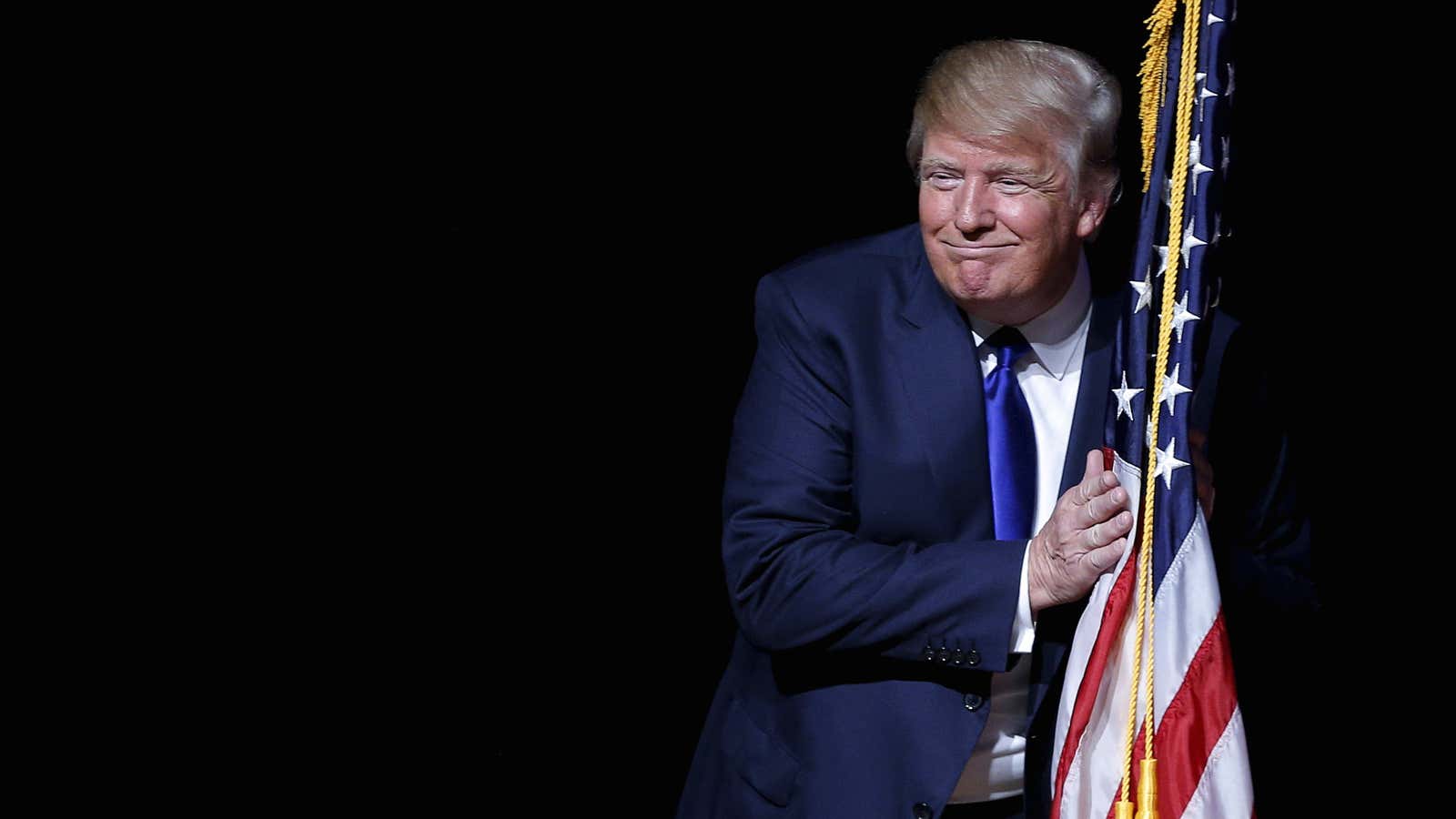Donald Trump: reality television star, real estate mogul, US presidential hopeful—and now, accidental white nationalist.
When Trump announced his candidacy on June 16, 2015, the outspoken mogul did so with a vow to build an approximately 2,000-mile long wall between the US and Mexico. That inaugural press conference also included a now infamous quote accusing undocumented immigrants of wide-scale drug smuggling, general crime, and rape, all in one breath.
But while liberals fumed in the aftermath of the widely-publicized comments, Trump’s numbers surged. His favorability among Republican voters jumped from 16% to 57%, according to The New Yorker. Stanching the flow of illegal immigration has become one of the foundations of his 2016 campaign—it’s the crown jewel of his overall appeal.
At its core, Trump’s campaign is a shamelessly cynical appeal to white paranoia: the real, underlying basis for right-wing opposition to illegal immigration. Inadvertently or not (and let’s assume not), Trump has successfully struck a strategically advantageous nerve among those who irrationally fear the “browning” of America. As such, the man with the straw-colored coif has launched the first campaign for major political office based on racial paranoia since the days of Jim Crow and Dixiecrat anti-integrationists.
American voters ignore this at their peril. Though many have been quick to dismiss Trump’s ascendance as a Herman Cain-esque blip—the product of a happy coincidence of timing and media intrigue—recent elections across the Atlantic indicate that large-scale, far-right movements can successfully campaign on a platform of xenophobia.
In May 2014, France’s far-right, anti-immigrant National Front party (FN) shocked the world in the 2014 European Parliament elections, beating sitting French president François Hollande’s Socialist party by roughly 11 points. “It was the first time the anti-immigrant, anti-EU party had won a nationwide election in its four-decade history,” wrote Mark John and Leila Abboud for Reuters. The EP is the legislative branch of the European Union, for which members of parliament (MEPs) are directly elected by constituencies within member states. France maintains 74 seats in the EP, the second-largest number after Germany.
FN, led by notorious nationalist Marine Le Pen, herself the daughter of France’s most public racist, Jean-Marie Le Pen, received more than four million votes (a quarter of the French vote), and 24 of France’s European Parliament seats. Today, FN leads a far-right parliamentary bloc in Europe that has devoted itself single-mindedly to putting a Trumpian wall around Europe.
If such a coalition can form in markedly more socially progressive Europe, who’s to say it couldn’t happen in the United States? What’s more, plenty of issues that add fuel to the American conservative fire—gun control, socialized medicine, abortion, etc.—are non-issues, or at least less significant, for conservatives in France. Trump and his idealogical comrades have far more rhetorical ammunition at their disposal than Le Pen and the FN, if they choose to use it.
Over the last year or so, commentators have raised concerns over the return of fascism in Europe. Last time that happened, the US and its allies posed substantial-enough opposition. As a result, the ideology languished for seven or so decades. The world should fear, however, the return of European fascism, especially if coupled with a parallel rise in the United States. Of course, it’s comical to think the face of American fascism would be the host of NBC’s The Apprentice, but the notion of Trump in a position of power, wielding actual political influence, is far less laughable.




